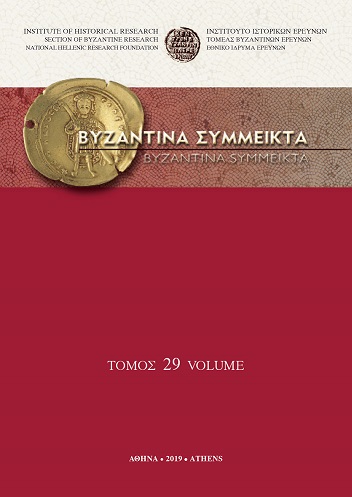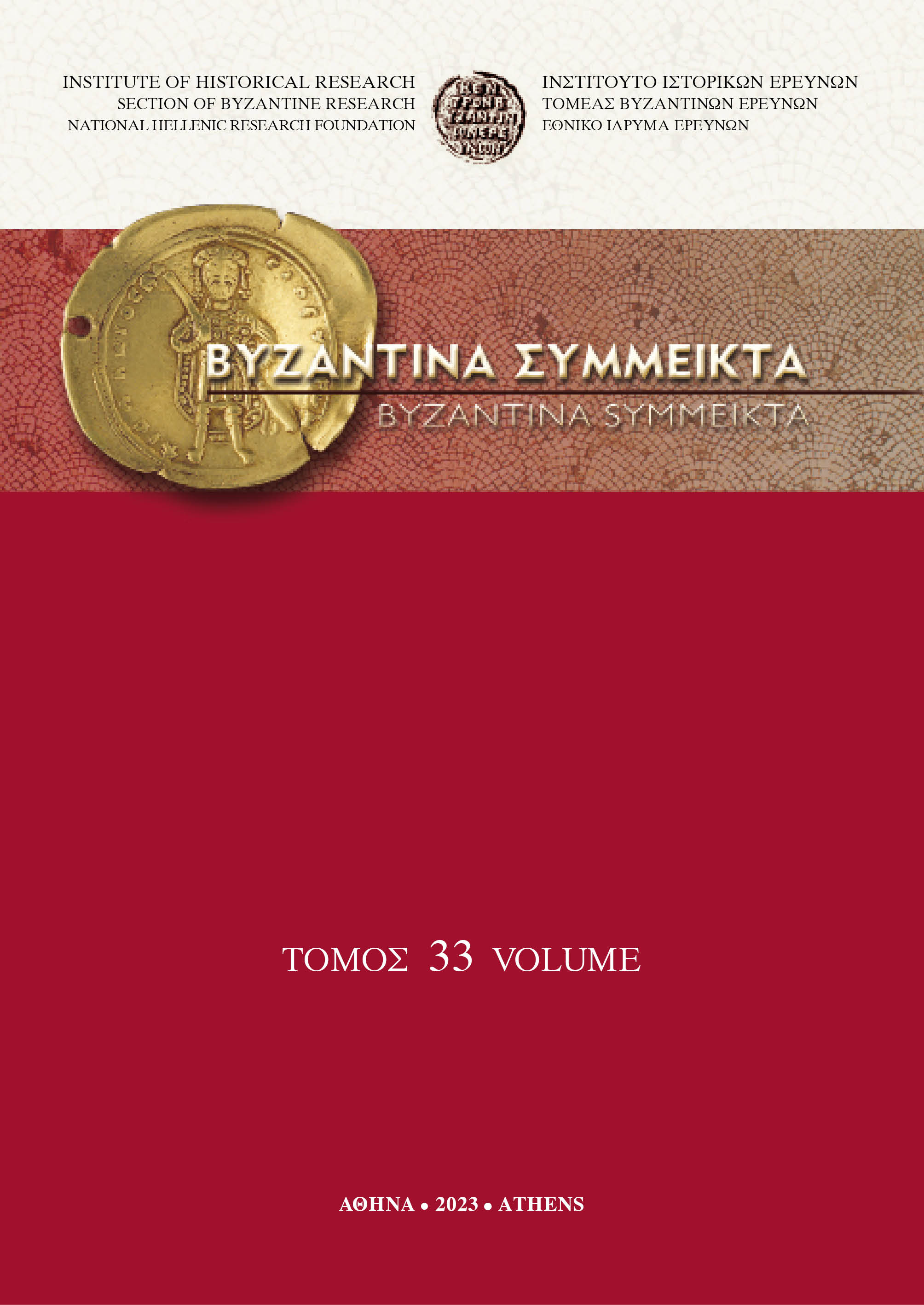Τυμβωρῦχοι καὶ σκυλευτἐς νεκρῶν: Οι απόψεις του Νικολάου Καταφλώρον για τη ρητορική και τους ρήτορες στην Κωνσταντινούπολη του 12ου αιώνα

Abstract
Marina Loukaki
Τυμβωρῦχοι and σκυλευτὲς νεκρῶν: The views of Nicolaos Kataphloron on rhetoric and the rhetoricians in 12th century Constantinople
There were many factors that were conducive to the flourishing of rhetoric in Constantinople during the Comneni and Angeli era. In the preface of an unpublished encomium about a Greek governor, Nikolaos Kataphloron, 12th century maistor of the rhetors and oikoumenikos didaskalos, criticizes the rhetors of his time, without excepting himself, for being occupied in their works, excessively and exclusively, with the word elegance. He particularly rebukes 12 most prolific writers of Constantinople, whose compositions are indeed patchworks of borrowings from ancient literature. These plagiarists, by shamelessly exhibiting their plunder to the public, gain for themselves fame and renown. Our commentary of the passage demonstrates that Kataphloron's views are greatly influenced by the discussion on the worth of rhetoric, which started in antiquity and was resumed by the writers of the Second Sophistic. However, it is interesting to note that Kataphloron reproaches -in a humorous way- 12 specific rhetors, who are not any others but the 12 didaskaloi of the Patriarchate. It is also pointed out that Michael Choniates expresses similar views some years later.
Article Details
- How to Cite
-
ΛΟΥΚΑΚΗ Μ. (2008). Τυμβωρῦχοι καὶ σκυλευτἐς νεκρῶν: Οι απόψεις του Νικολάου Καταφλώρον για τη ρητορική και τους ρήτορες στην Κωνσταντινούπολη του 12ου αιώνα. Byzantina Symmeikta, 14, 143–166. https://doi.org/10.12681/byzsym.877
- Issue
- SYMMEIKTA 14
- Section
- Articles

This work is licensed under a Creative Commons Attribution-NonCommercial-ShareAlike 4.0 International License.
Copyright: The copyright for articles in this journal is retained by the author(s), with first publication rights granted to the journal. By virtue of their appearance in this open access journal, articles are free to use (with the exception of the non-granted right to make derivative works) with proper attribution for non-commercial uses (licence Creative Commons 4.0). NHRF retains the worldwide right to reproduce, display, distribute, and use articles published in BYZANTINA SYMMEIKTA in all formats and media, either separately or as part of collective works for the full term of copyright. This includes but is not limited to the right to publish articles in an issue of the Journal, copy and distribute individual reprints of the articles, authorize reproduction of articles in their entirety in another NHRF publication, and authorize reproduction and distribution of articles or abstracts thereof by means of computerized retrieval systems.




